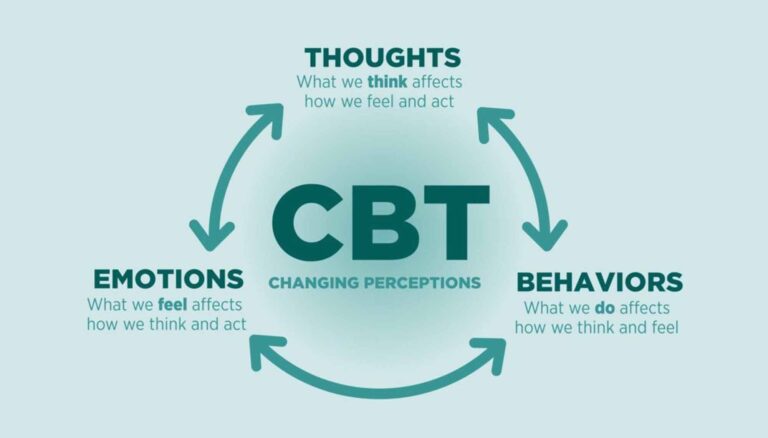Thyroid cancer, while often considered rare compared to other cancers, is among the most rapidly increasing cancer diagnoses globally. According to the American Cancer Society, an estimated 52,890 new cases of thyroid cancer were diagnosed in the United States in 2021 alone, with approximately 2,180 deaths attributed to the disease. Although thyroid cancer can affect individuals of all ages, it is more commonly diagnosed in individuals between the ages of 20 and 55, with women being three times more likely to develop the disease than men.
Despite its rising incidence, thyroid cancer generally carries a favorable prognosis, with a five-year survival rate of around 98%. This high survival rate is attributed to several factors, including the slow growth rate of most thyroid tumors, effective treatment options such as surgery, radioactive iodine therapy, and targeted therapies, as well as advancements in early detection and diagnosis. However, it’s essential to note that survival rates can vary depending on factors such as the cancer’s stage at diagnosis, the subtype of thyroid cancer, and individual health factors. Thus, timely detection and appropriate treatment remain crucial to improving outcomes for individuals diagnosed with thyroid cancer.
The Stealthy Nature of Thyroid Cancer
Thyroid cancer is known for its stealthy nature, often remaining asymptomatic or causing subtle symptoms in its early stages. Unlike more aggressive cancers that may be associated with alarming symptoms, thyroid cancer can quietly proliferate within the thyroid gland, often undetected by routine physical examinations or screenings. This silent progression can allow the tumor to grow slowly over months or even years without causing noticeable signs, leading to delayed diagnosis and treatment.
Signs and symptoms of thyroid cancer
Thyroid cancer, in its early stages, may not always present with noticeable symptoms. However, as the disease progresses, some signs and symptoms may emerge, prompting further investigation. It’s important to note that experiencing these symptoms does not necessarily indicate thyroid cancer, as they can overlap with other thyroid conditions or non-cancerous issues. Nonetheless, recognizing potential signs can prompt timely medical evaluation and diagnosis.
Common signs and symptoms of thyroid cancer may include

Neck Lump or Nodule: The most common symptom of thyroid cancer is the presence of a lump or nodule in the neck, often near the thyroid gland. These nodules may be painless and can sometimes be felt or seen as a visible swelling in the neck.
Changes in Voice: Thyroid cancer can affect the vocal cords and surrounding structures, leading to hoarseness or changes in voice quality. Persistent hoarseness or difficulty speaking may warrant further evaluation by a healthcare professional.
Difficulty Swallowing (Dysphagia): As thyroid tumors grow, they may exert pressure on the esophagus or windpipe, causing difficulty swallowing or a sensation of choking or fullness in the throat.
Neck Pain or Pressure: Some individuals with thyroid cancer may experience discomfort, pain, or pressure in the neck region, especially if the tumor is large or pressing on nearby structures.
Enlarged Lymph Nodes: In advanced cases of thyroid cancer, nearby lymph nodes may become enlarged or swollen. Palpable lymph nodes in the neck may indicate the spread of cancer beyond the thyroid gland.
Changes in Breathing: Rarely, thyroid cancer may cause breathing difficulties, particularly if the tumor compresses the trachea or windpipe, leading to shortness of breath or wheezing.
Persistent Cough: A chronic or persistent cough that does not resolve with typical treatments may sometimes be associated with thyroid cancer, especially if other symptoms are present.
Nutrient-rich foods for thyroid Health
Iodine-rich Foods: Iodine is essential for thyroid function, as the thyroid gland uses iodine to produce thyroid hormones. Incorporate iodine-rich foods such as seaweed, iodized salt, fish (such as cod and tuna), dairy products, and eggs into your diet.
Selenium-rich Foods: Selenium is a trace mineral that acts as an antioxidant and supports thyroid health. Foods rich in selenium include Brazil nuts, sunflower seeds, fish (such as salmon and sardines), eggs, and whole grains.
Omega-3 Fatty Acids: Omega-3 fatty acids have anti-inflammatory properties and may help reduce inflammation associated with thyroid conditions. Include sources of omega-3s such as fatty fish (salmon, mackerel, and sardines), flaxseeds, chia seeds, walnuts, and hemp seeds in your diet.
Antioxidant-rich Foods: Antioxidants help protect cells from damage caused by free radicals and may support overall health and immune function. Incorporate antioxidant-rich foods such as fruits (berries, citrus fruits), vegetables (spinach, kale, broccoli), nuts (almonds, pecans), seeds (sunflower seeds), and green tea into your diet.
Lean Protein: Protein is essential for tissue repair and immune function. Include lean sources of protein such as poultry, fish, tofu, legumes (beans, lentils), and dairy products (low-fat yogurt, cottage cheese) in your meals.
Whole Grains: Whole grains provide fiber, vitamins, and minerals that support overall health and digestion. Choose whole grains such as quinoa, brown rice, oats, barley, and whole wheat bread or pasta to provide sustained energy and nutrients.
Fruits and Vegetables: Aim to include a variety of colorful fruits and vegetables in your diet to provide a range of vitamins, minerals, and phytonutrients. These nutrients support immune function and overall health. Aim for at least five servings of fruits and vegetables per day, including a mix of leafy greens, berries, citrus fruits, and cruciferous vegetables (broccoli, cauliflower, Brussels sprouts).
Table: Thyroid-supportive Foods
| Category | Foods |
|---|---|
| Iodine-rich Foods | Seaweed, iodized salt, fish, dairy products, eggs |
| Selenium-rich Foods | Brazil nuts, sunflower seeds, fish, eggs, whole grains |
| Omega-3 Fatty Acids | Fatty fish (salmon, mackerel, sardines), flaxseeds, chia seeds, walnuts, hemp seeds |
| Antioxidant-rich Foods | Berries, citrus fruits, spinach, kale, broccoli, nuts, seeds, green tea |
| Lean Protein | Poultry, fish, tofu, legumes, dairy products |
| Whole Grains | Quinoa, brown rice, oats, barley, whole wheat bread, pasta |
| Fruits and Vegetables | Leafy greens, berries, citrus fruits, cruciferous vegetables |
How is thyroid cancer diagnosed?
Thyroid cancer is diagnosed through a medical history review, physical examination, imaging tests, and biopsy procedures. The diagnostic process involves:
Medical History and Physical Examination: Your doctor will gather a medical history, including symptoms and risk factors like family history or radiation exposure. A physical exam focuses on the thyroid gland for lumps or swelling.
Imaging Tests: Ultrasound, CT scans, or MRIs visualize the thyroid and surrounding areas, identifying suspicious nodules or masses.
Fine-Needle Aspiration (FNA) Biopsy: If a suspicious nodule is found, an FNA biopsy collects tissue for analysis. This helps determine if it’s benign or malignant.
Additional Tests: Blood tests, radioactive iodine scans, or molecular testing may provide more information.
Biopsy Results and Diagnosis: A pathologist examines the biopsy sample to diagnose cancer. Further tests may determine cancer subtype and stage.
Thyroid cancer diagnosis involves a multidisciplinary team, including endocrinologists, radiologists, pathologists, and surgeons, aiming to accurately identify nodules or masses and plan treatment accordingly.
When to contact a doctor?
Changes in the neck, such as the presence of a new lump or swelling, difficulty swallowing or breathing, or persistent hoarseness or voice changes, should also prompt a visit to the doctor. These symptoms may indicate a problem with the thyroid gland or other structures in the neck and require evaluation by a healthcare provider. Prompt medical attention can help identify the underlying cause of these symptoms and ensure appropriate treatment and management. If you have any concerns or questions about your symptoms, don’t hesitate to contact your healthcare provider for guidance and appropriate care.
Conclusion
To summarize, thyroid cancer often begins silently, with the tumor quietly growing within the thyroid gland without causing any noticeable symptoms. However, awareness of potential symptoms, risk factors, and the importance of seeking medical evaluation for concerning signs are essential for early detection and intervention. By remaining vigilant and proactive about their health, individuals can empower themselves to detect thyroid cancer before it progresses, ultimately improving their chances of successful treatment and recovery.



How Long can You Have Thyroid Cancer without Knowing?